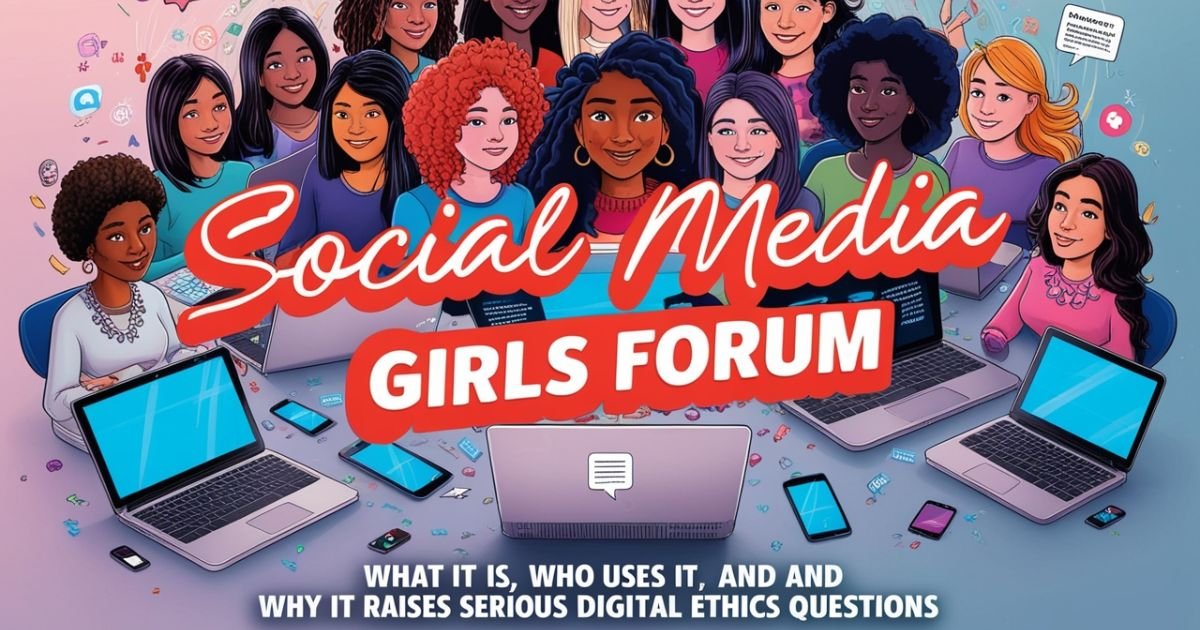Introduction
Online communities sometimes known as “social media girl forums” attract creators, influencers, and people curious about social media culture. In these spaces, participants share strategies, seek feedback, and discuss personal experiences. But such forums aren’t uniformly positive: some are supportive and moderated, others devolve into harassment or privacy violations.
To navigate them meaningfully, you need both practical guidance and a map of red flags. This article gives you that — how to find solid forums, how to protect yourself, how to tell good from harmful, and what to do if things go wrong.
What Are Social Media Girl Forums?
These are online groups or message boards where women, femmes, and people interested in social media life gather. Their focus can include:
-
Content-creation tips (hashtags, editing, scheduling)
-
Networking and collaboration
-
Mental health, burnout, self-esteem
-
Industry trends, influencer marketing
-
Personal stories and support
They take many forms: public forums, private Discord or Slack servers, Facebook or Telegram groups, subreddit communities, or purpose-built websites.
Why People Join Them
Forums like these flourish because they offer something that generic social platforms often don’t:
-
Focused expertise
If you have a question about “Reels algorithm in 2025” or “brand pitch templates,” a specialized forum can surface nuanced answers faster. -
Mentorship & peer support
You can find peers who’ve been where you are — trading tips, collaborating, or simply commiserating about algorithm shifts. -
Emotional & identity-safe spaces
For marginalized creators — women, queer folks, or others — forums can be a place to share frustrations and get emotional backing where broader social media feels hostile. -
Opportunity sharing
Brand deals, influencer campaigns, guest posts — these often get circulated in closed communities first.
Risks & Red Flags You Must Know
While there’s value in these spaces, you must stay alert. Key risks include:
-
Harassment and anonymity abuse
Anonymous or pseudonymous forums sometimes become grounds for gossip, doxxing, reposting images without consent, or targeted shaming. -
Pirated or illicit content
Some forums encourage sharing of paywalled content, private photos, or unauthorized media — a violation of creators’ rights. -
Unqualified moderation or non-existent rules
When rules are vague, inconsistently enforced, or moderators are hidden, harmful posts often go unchecked. -
Data leaks and privacy violations
Forums that ask for usernames, DMs, or personal info expose you to scraping and doxxing. -
Echo chambers or groupthink
Some forums suppress dissent, enforce narrow viewpoints, or discourage critical perspectives — which can harm personal growth.
How to Spot a Safe Forum
Here are practical criteria you should use when vetting any “girl forum”:
-
Moderation transparency
Look for pinned rules, removal logs, “report” buttons, and communication from moderators. -
Community culture
Peek at recent threads: are they respectful, constructive, or dominated by gossip and negativity? -
Membership and gatekeeping
Invite-only or semi-private communities often filter out trolls. Public forums are fine if they show strong moderation. -
Age-appropriate design & safety features
Especially if minors might participate, the site should have content filters, help pages, and safe-exit options. -
Reputation and referrals
Ask trusted creators or peers whether they’ve had good experiences there. Past abuse reports or testimonials matter.
How to Engage Wisely (Without Getting Burned)
-
Lurk first — Don’t post immediately. Spend a few days reading to understand community tone.
-
Start small — Post a light question (e.g., about tools or trends) and see how others respond.
-
Use pseudonyms if needed — You don’t have to share your full identity until trust is built.
-
Limit personal or private info — Never post contact details, precise location, unreleased content, or private DMs.
-
Collaborate in controlled ways — Use vetted channels or email for sensitive conversations.
-
Document red flags — If harassment or violations happen, save evidence (screenshots, timestamps) early.
-
Exit when necessary — If the space becomes hostile or toxic, mute, leave, and report. Your mental health matters more than any forum.
What to Do When Harm Happens
If you face abuse, doxxing, non-consensual sharing, or other violations:
-
Use the forum’s “report” or “flag” features immediately.
-
Provide screenshots, timestamps, and context.
-
Contact the platform’s broader abuse or trust teams.
-
If the harm includes threats or private data exposure, escalate to legal support or law enforcement.
-
Seek emotional support — being targeted can take a psychological toll.
For Community Organizers: Building Better Spaces
If you run a “girl forum” or want to help improve one:
-
Publish clear community rules and escalation paths.
-
Use a team of trusted moderators, ideally with training in conflict resolution or safety.
-
Maintain logs of removals and decisions (transparency builds trust).
-
Consider tiered access — e.g., an open area plus a vetted, private section for sensitive discussion.
-
Prioritize mental-health resources and disclaimers.
-
Recruit moderators or collaborators with credibility to strengthen authority and trust.
Read More: How Make1M.com Helps You Build Your First Million
Conclusion
Social media girl forums can be vibrant hubs for creators, community, and collaboration — or they can deteriorate into spaces rife with harassment, privacy abuses, and rumor. The difference lies in design, moderation, and user vigilance. By carefully selecting forums, protecting your privacy, and testing interactions gradually, you can get value while minimizing harm. If misconduct occurs, act quickly: report, document, and disengage.
For those who build or moderate forums, transparency and clear governance are key to maintaining trust. At their best, these forums help people grow their digital presence, access rare opportunities, and find emotional solidarity. Approach them thoughtfully — protect your boundaries, demand respectful environments, and help shape the healthier, safer forums you wish existed.
FAQs
1. What are social media girl forums used for?
They’re used for sharing social-media strategies, seeking creative and emotional support, collaboration, branding insights, and discussing influencer life.
2. Can social media girl forums be harmful?
Yes — especially when anonymity is misused, moderation is weak, or communities tolerate harassment, privacy invasion, or illicit content.
3. How do I choose a trustworthy forum?
Look for visible rules and moderation, respectful community culture, referrals from trusted people, and minimal demands for personal data.
4. How do I protect myself while participating?
Use pseudonyms, don’t disclose personal info, watermark drafts, and avoid posting sensitive content before trust is built.
5. What should I do if I’m harassed or doxxed in a forum?
Report using platform tools, preserve evidence, contact moderation or platform safety teams, escalate to legal or law enforcement if necessary, and leave the community.










